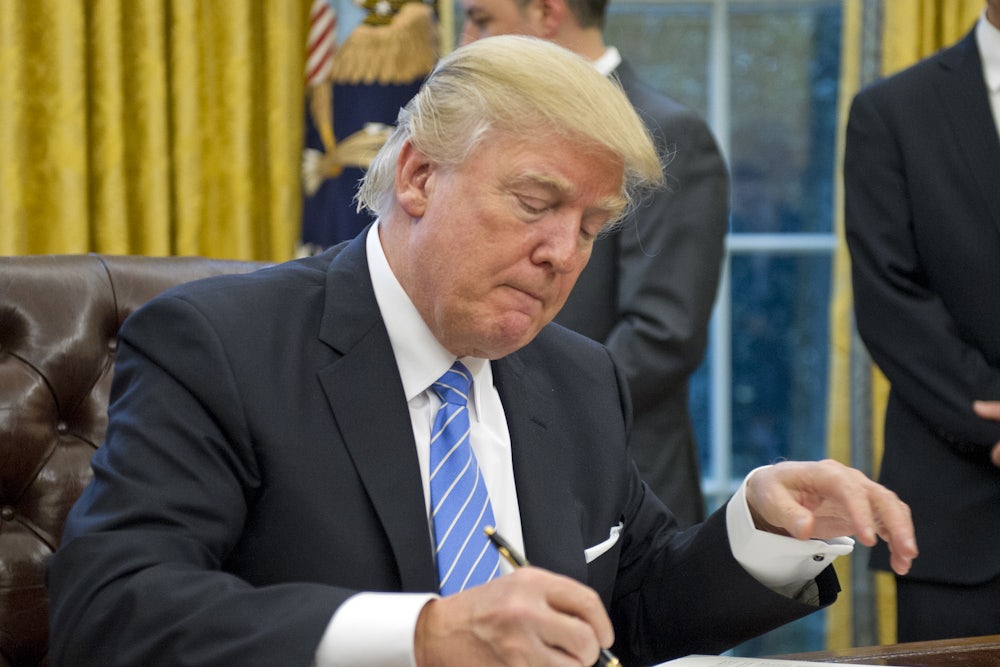Minority Leader Nancy Pelosi, the top Democrat in the House, met with President Donald Trump and other congressional leaders at the White House on Monday. Afterward, she spoke with reporters at the Capitol Building about Trump’s decision to reinstitute a U.S. policy—known as the “global gag rule” or “Mexico City policy”—that strips foreign NGOs of federal money if they educate people abroad about abortion.
“It’s no surprise, it’s no surprise,” she said. “We didn’t really talk about the [global] gag rule because well, you know, what do you expect?” She depicted his decision as a predictable, but unfortunate part of the ebb and flow of partisan politics. “Reagan did that and Obama reversed that and then now it’s been reversed by this president.”
She was right: The reimplementation of the policy wasn’t surprising. But in a different sense, this is a perfect example of how political elites take certain outcomes for granted—to the point that these outcomes don’t even merit debate on Capitol Hill and in the press, and thus, the voting public is never made aware of it.
The global gag rule is just one policy, and it would’ve been odd if it drove a bunch of news cycles during the campaign. But to the extent that few reporters in Washington were surprised by this Trump executive order, it represents a broader failure on the part of the political press to convey the stakes of this past election clearly. Major policy differences between the two parties are second nature to much of the media, yet somehow weren’t laid out clearly before voters, which may be why the early days of the Trump era have been so disorienting—even for Trump’s supporters.
The institutional failures that allowed Trump to win the GOP nomination and then the presidency have largely been glossed over, including by employees and managers of big media outlets. But their defensiveness is belied by developments that surfaced only after the election.
Since his inauguration, Trump has ordered not just the global gag rule, but a non-defense federal hiring freeze that will disproportionately harm veterans (whom Trump claimed to champion on the campaign trail). His vague demand that cabinet secretaries begin easing enforcement of Affordable Care Act has yet to impact federal policy, but it has the potential to loose chaos in the Obamacare marketplaces, and begin the law’s unwinding. Trump’s pick for FCC chair, Ajit Pai, wants to take a “weed whacker” to net neutrality.
Like the gag rule, none of this comes as a surprise. Most presidents sign orders that change executive branch policy shortly after they take office. When partisan control of the White House changes, the policy swings can be pretty severe. But they are generally well understood within the political class.
In this election more than in most, these shifts were not relayed to voters. This is nearly as true of more visible policy fights. Trump was able to run a populist campaign, in part, because his and Republicans’ undisguised desire to deregulate Wall Street was subordinate to a focus on Trump’s false promises to battle the global elite and Hillary Clinton’s speeches to financial companies. Trump promised to repeal Obamacare, but the fact that many of his supporters benefit from that law, and are now scared of what he might do, only became major news stories once his power to rescind their health insurance was locked in.
After every election, important political institutions retool for governing, which creates a strong incentive to leave campaign-related controversies unaddressed. But if you believe these issues were thoroughly examined during the election, in proportion to their importance in people’s lives, I have some emails about risotto to show you.
